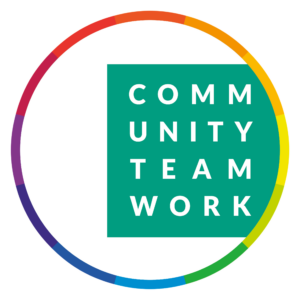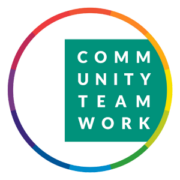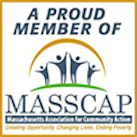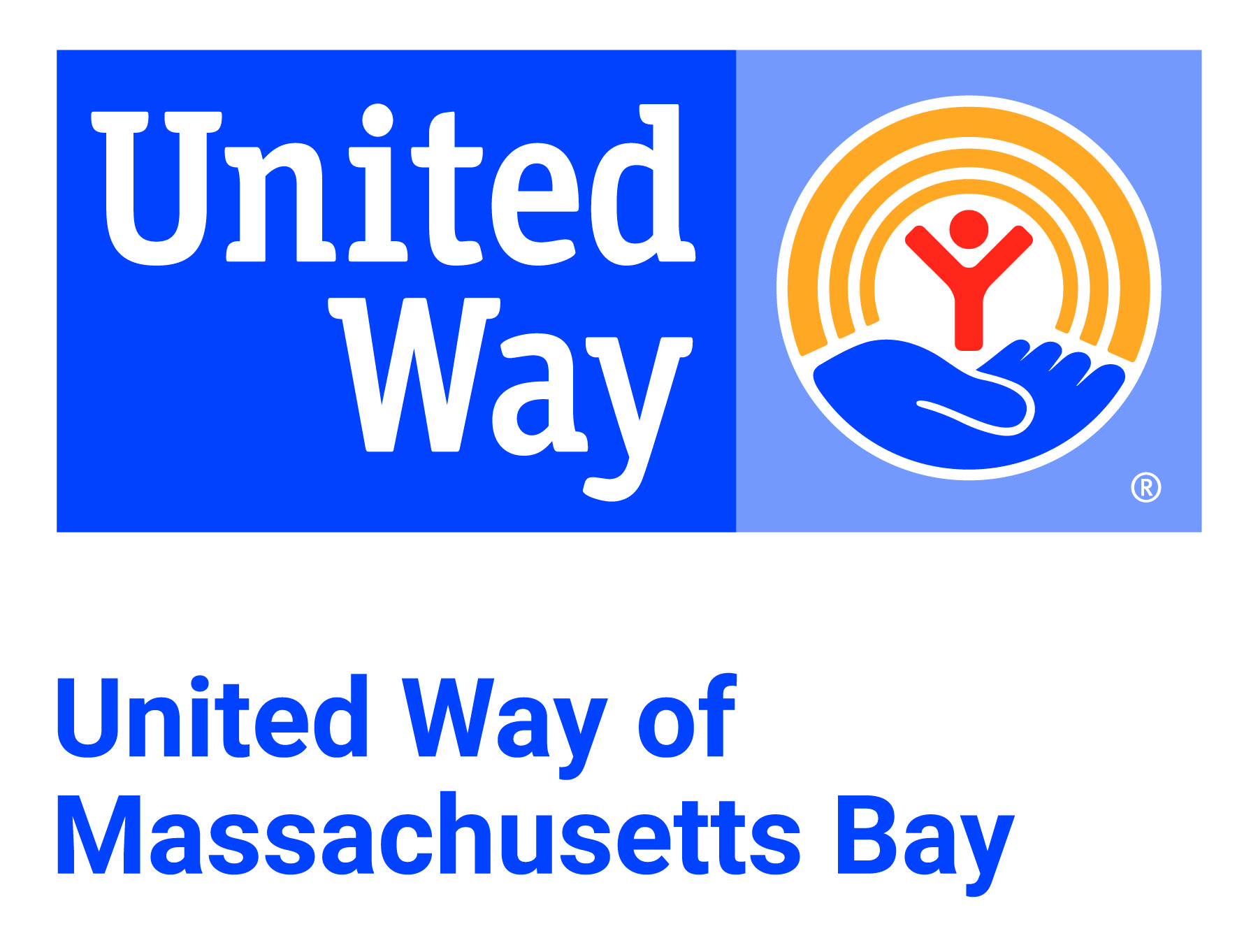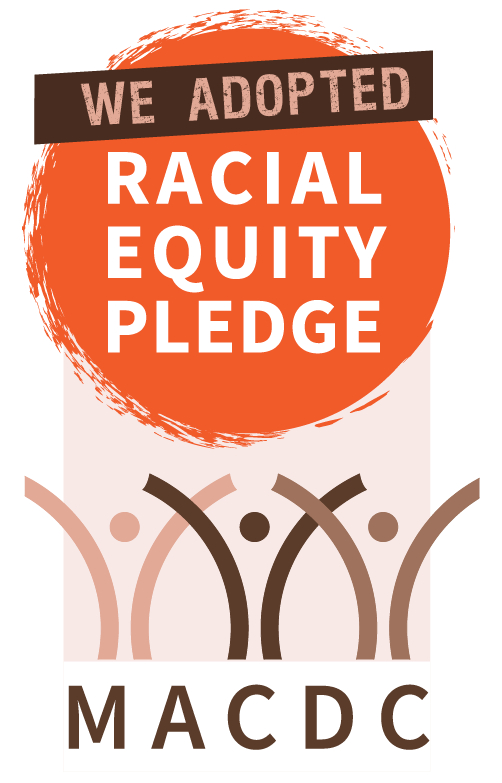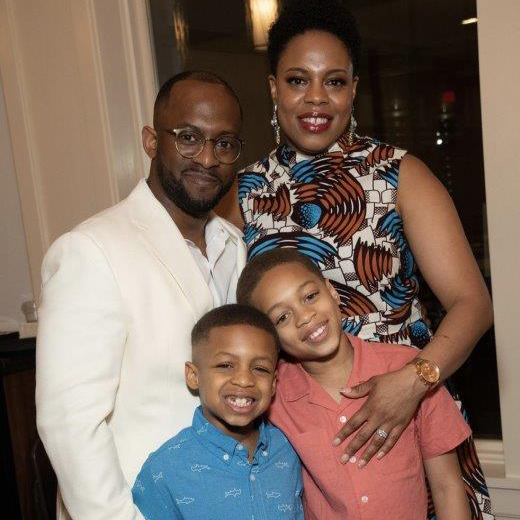
CTI Celebrates Local Black Leaders of Excellence ~ Bobby Tugbiyele
Bobby Tugbiyele
Nominated by Carl Howell, CPO, Community Teamwork
What is your title/role/organization and/or involvement in the community?
I am the Founder and CEO of The Leap Network, LLC a multi-specialty recruitment and consulting firm specializing in the placement of medical professionals and healthcare administrators. Prior to launching my firm in 2017, I was the Recruiting Manager for Lowell Community Health Center and have been in the corporate and non-profit Talent Acquisition, Workforce Development and Human Resources fields since 2005. I currently serve as a Board Member for the Massachusetts Workforce Association, Advisory Board Member for EforAll Merrimack Valley, Corporator for Lowell General Hospital, and Advisory Board Member for University of Massachusetts Lowell College of Fine Arts, Humanities and Social Sciences (FAHSS). I am a former Trustee of the Merrimack Repertory Theatre and former President of the Center City Committee which advocated and spearheaded public-private collaborative projects for the betterment of the downtown area. I am a Co-Founder of The Foundation Mixer, a networking event series for ascending professionals to foster greater connections, engagement, and collaboration. I am also a member of the DEI Consortium- Lowell. I currently reside in Downtown Lowell with my wife and two sons.
What does Black History Month Mean to you?
When I think of Black History Month, I wonder what resistance and roadblocks Carter G. Woodson experienced while fighting for Black history to be taught in public schools. His staunch desire and fight to ensure that Black history wasn’t solely relegated to the history of the transatlantic slave trade, was something that we should all be thankful for. And we should all be thankful and grateful for this because the social, political, and economic fabric and benefits of America would not be what it is today without the ingenuity, sacrifice and perseverance of Black people. I think about W.E.B DuBois and Booker T. Washington and the diversity of thoughts and approaches when addressing the plight of Black people. I think about Ida B. Wells, the racism that existed within the suffrage movement and the rise of Black feminism. As Ida once said, “The very frequent inquiry made after my lectures by interested friends is “What can I do to help the cause?” The answer always is: ‘Tell the world the facts.’” There are forces who are working hard to revise, sanitize, or erase history. To me, the work during Black History Month, and all the days before and after, is simple- Tell the Truth and Fight for it!
What can the community do more of to recognize Black History during the year?
Being of Nigerian ancestry, I have come to understand more and more that there is a real disconnect and understanding of Black history amongst fellow Africans, those in the Caribbean and overall in the diaspora. When Carter G. Woodson wrote “Miseducation of the Negro” in 1933, he argued that schools conditioned Black people to accept a low status in society and not to be proud of their heritage. This conditioning was purposeful and systemic and has caused generations of Black people around the globe to either question their identity or believe they are lesser than. I believe education will always start at home so parents and families have an even greater responsibility to invest in continuous learning and some unlearning so that their children can be more enlightened. The greater community which, to me, includes educational and political institutions can play a great role by bridging gaps in learning and promote healing through on-going community conversations and ensuring that policies and laws that disproportionately impact Black people are informed by the lived experiences of that community. Recognition of Black History is one step. However, in my opinion, creating and sustaining an environment and culture that invests in it and hold others accountable for it is the harder part. This is the challenge I believe our community faces. We all have a collective responsibility to read, keep reading, and read some more. Read the good, read the bad and read the ugly. Shielding our young people from history will doom them to repeat it.
How did you become inspired to make a difference in your community?
I am the son of immigrants who left Nigeria in the early 1970s and made a new life for themselves and their children in New York City. At a very young age, I saw what hard work, sacrifice and perseverance looked like. It wasn’t always pretty but it did teach me many lessons that guide me today. I’ve been inspired by my parents, uncles and aunts, cousins, and siblings. I’ve been inspired by teachers who would push me to learn history and develop stronger skills in writing and critical thinking. I’ve been inspired by my in-laws who raised their children with the same values that I was raised in. I remember my parents always sending money back to their relatives in Nigeria to make sure they had clothes on their back or make sure they finished their schooling. Giving back and thinking about others has always been a part of my DNA.
What has been the most rewarding part of your commitment to the community?
Over the past decade, I am truly fortunate to have been surrounded by groups of like-minded Lowellians who believed that the city could do more to be more welcoming. Welcoming not only through the actions of individuals but also within its institutions and its systems. I believe that people will always come and go but the problems tend to remain the same. And so, I have committed myself to working hard to address systemic issues that ultimately impact the lives and livelihoods of so many in the community. There have been many rewarding aspects of my community involvement which, to name a few, include:
- Successfully co-leading organizing efforts for more Human Resources and DEI investments within Lowell Public Schools, City of Lowell and within non-profit and corporate organizations
- Successfully engaging over 150 residents around the “Meet The Finalists” campaign to petition the City of Lowell to modernize its hiring and selection process for Chief of Police.
- Successfully co-leading organizing efforts to push for Human Resources Audits for both City of Lowell and Lowell Public Schools
- Leading the Center City Committee which advocated and spearheaded public-private collaborative projects and advocacy efforts for the betterment of the downtown area.
- Successfully co-leading organizing efforts to have the City of Lowell publish Covid-19 data by race and ethnicity setting the stage for declarations of “Racism Is a Public Health Crisis” in Lowell Public Schools and ultimately within the City of Lowell.
- Co-Founding “The Foundation Mixer” which led to more connections, engagement and collaboration between young professionals and the business, arts, and greater non-profit community.
What advice would you give to future generations of leaders in the community?
Leadership can look and feel differently to many people. Some of our most celebrated humans throughout history were not always public-facing. Many of these individuals operated away from the lime-light and preferred it that way. Sometimes those who are labeled “leaders” are those that the community tend to see most often in various events or are affiliated with specific board(s), companies, organizations, or are known for their philanthropy. I believe that leadership needs to be broadly defined and assessed regardless of title or station in the community. There are too many people who limit themselves or make themselves smaller because they believe they do not have a certain observable status or title in society. And so, to the future generations of leaders, my advice would be for them to lead boldly wherever they feel most comfortable and to never compare themselves to other people. Having a high net worth or an advanced degree or being a life-long resident of a community are not prerequisites to leadership. Ultimately, I believe it’s a heart and mindset thing. Make sure the work you do affects other hearts and minds. This is how change happens!
What advice would you give to young people looking to make a positive influence in their community?
- Take risks but do your homework! Being passionate but uninformed, in my opinion, is counterproductive. Take your time in learning the history and the people behind what you’re passionate about so when you speak, write, or engage others in your passion, you are able to provide substance as well as context.
- Be ready to stand alone for some time. If you are not willing to take the hits for your passion, then maybe you’re pursuing the wrong thing. The road to making a positive influence isn’t always pretty. You will build relationships along the way, and you will lose some. Be fiercely guided by your north star but understand that not everyone will buy into it initially or ever.
- Your uniqueness is your gift. Every human being has a unique skill set. A gift! Our ability to understand and accept what these gifts are and use them in such a way to inspire others will help to make a positive influence in the community. Tapping into your gift is one level. Tapping into other people’s gifts, that’s next level.
- You will fall, but always get back up!
- Push through fear. If you’re not uncomfortable or scared, you’re not doing it right. The presence of fear or nerves is normal for anyone who cares deeply enough about something. The long road to making a positive influence will require you to look fear and intimidation in the face push through it. The goal is to become more comfortable with being uncomfortable. In my opinion, that’s where the change starts to happen.
What do you hope to accomplish in the future to further your positive impact?
My legacy are my sons. Anything I do in the future or any positive impact I make, will have them in mind. If they can grow up to be active participants for doing good in their community or any line of work they choose, then I will be happy. You can’t become so ambitious and lose your family in the process. We have to think about our children. They will inherit the results of our actions or inactions.
#CommunityLeader #Leadership #Appreciation #BlackHistoryMonth #BlackLivesMatter #DEIatCTI #LowellBlackExcellence
Pictured – Bobby and Aleksandra Tugbiyele with their two sons
